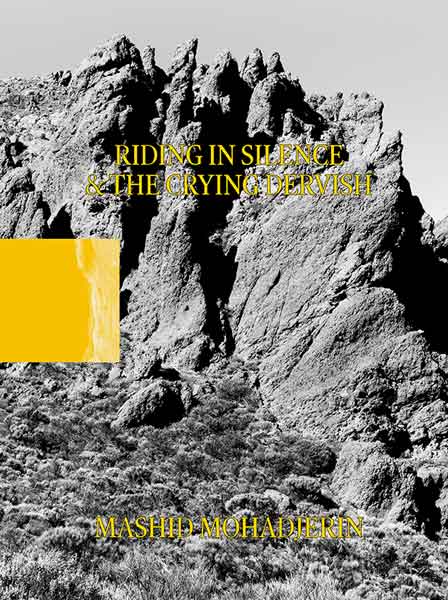BOOKS
Mashid Mohadjerin’s work is an intricate tapestry of personal and collective memory, weaving together photography, text, video, and archival material to explore themes of displacement, resistance, and identity. (Text by Andrea Copetti)

Riding in Silence & the Crying Dervish
OUT NOW
Order: info@mashid.com or https://www.ideabooks.nl/
In Riding in Silence & The Crying Dervish (2025) Mashid draws from the dept of her family history, unraveling the echoes of migration, forced departures, and the quiet endurance of those caught between worlds. The book builds on her previous work, Freedom is Not Free (2021) , where she explored the role of women in movements pf resistance across the MENA region. However, in this latest series, she turns her gaze towards the intersection of masculinity, political ideology, a,d displacement, examining how historical forces shape personal narratives in ways both visible and unseen.
She reconstructs the past not as a distant realm but as something tangible, living within language, inherited trauma, and memory. The presence of her ancestors—scholars, exiles, believers, and revolutionaries—haunts her work, their choices reverberating through time. Whether she speaks of the dervish’s grief in the mosque, the execution of the Báb, or her father’s reluctant exile, her storytelling carries a poetic weight, blending the deeply personal with the grand sweep of history. This layered approach allows her to engage with themes of exile and belonging in a way that is both intimate and politically urgent. (Text by Andrea Copetti)

Freedom is Not Free
(SOLD OUT)
What does freedom mean? Through the lens of her camera and through a kaleidoscope of history of women in resistance in the Middle East and North Africa Mashid put together a multidimensional work which, through its varied formats such as photography, collage, text, and historical images, takes the viewer on a dreamlike journey neither bound by space nor time.

Lipstick and Gas Masks
(SOLD OUT)
In the uprisings that started in Tunisia, surged to Egypt, then swept through other parts of the Middle East, women played an important role, standing alongside their male counterparts.
Coming from different ideological and social backgrounds, the women portrayed in this series defy stereotypes. Spirited, idealistic, courageous, and resolute, they led or instigated revolutionary acts in their respective countries.

Textile as Resistance
Order at https://hannibalbooks.be/
Refuge, resistance, hope, happiness, tradition, beauty, spirituality and decolonization. Textiles are – and have long been – a powerful medium for the expression of identity, especially in times of war and crisis. What messages and stories can fabrics share? What does an outfit or a piece of clothing say about the wearer? Can textiles weave the past together with the present? Can they be an act of resistance?
